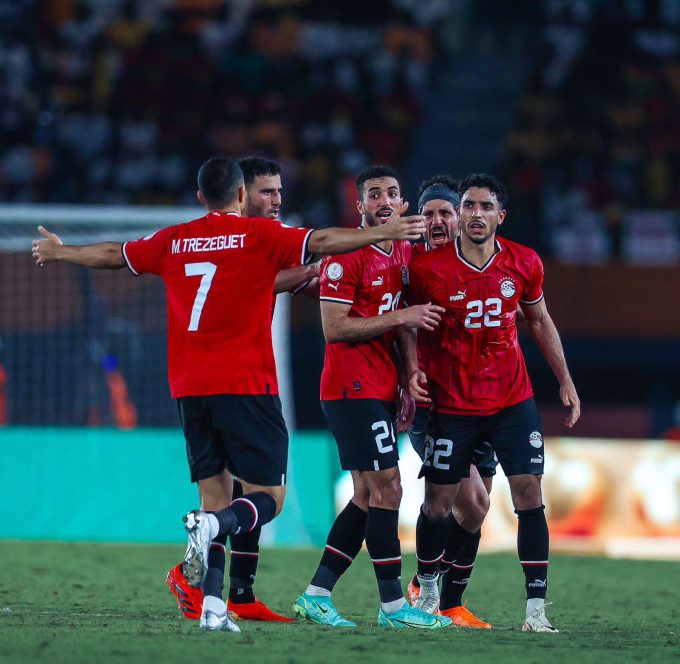
The opinions expressed in this article are representative of their owners, and are by no means associated with the stance of the platform.
With Egypt’s fate in their own hands, TAP Analysis looks at how they can secure qualification for the Africa Cup of Nations (AFCON) knockout stages.
An underwhelming start to Egypt’s AFCON campaign saw the Pharaohs settle for disappointing 2-2 draws in back-to-back games against Mozambique and Ghana respectively.
Meanwhile, group rivals Cape Verde have already secured qualification as they lead the standings with six points after convincing wins in their opening games.
The Blue Sharks have proved to be no underdogs in the competition and TAP Group have highlighted a few points Egypt should be aware of ahead of their encounter on Monday.
- Attacking in numbers
With a 4-4-2 formation, Cape Verde’s strengths lie in stamina and speed. A key aspect of their tactics involves the third man, a player who initiates the attack by executing a give-and-go pass and maintaining forward momentum by receiving the ball in the space between the defensive lines.
This approach aims to provide the team with a numerical advantage in an attacking movement. Additionally, their build-up strategy is contingent on the positioning of their wingers, who are found in acres of space.
- Quick transitions
Another strength in Cape Verde’s game plan is their attacking transitions. They rely on the pace of Ryan Mendes and Garry Rodrigues on the flanks, who exploit the space behind the fullbacks.
- Slow recovery
One of Cape Verde’s biggest vulnerabilities is their inability to defend against quick counter-attacks as their backline can be exposed due to lack of support from their forwards who arrive late for cover.
- Defending set-pieces
Set-pieces are another major weakness that Egypt can use to their advantage and this was evident in Cape Verde’s win against Ghana.
The starting position of the defenders played a huge part in helping the opposition find enough space in the box for different types of set-piece deliveries.
Furthermore, they leave the far post unattended, providing an opportunity for opponents to position themselves in dangerous areas.